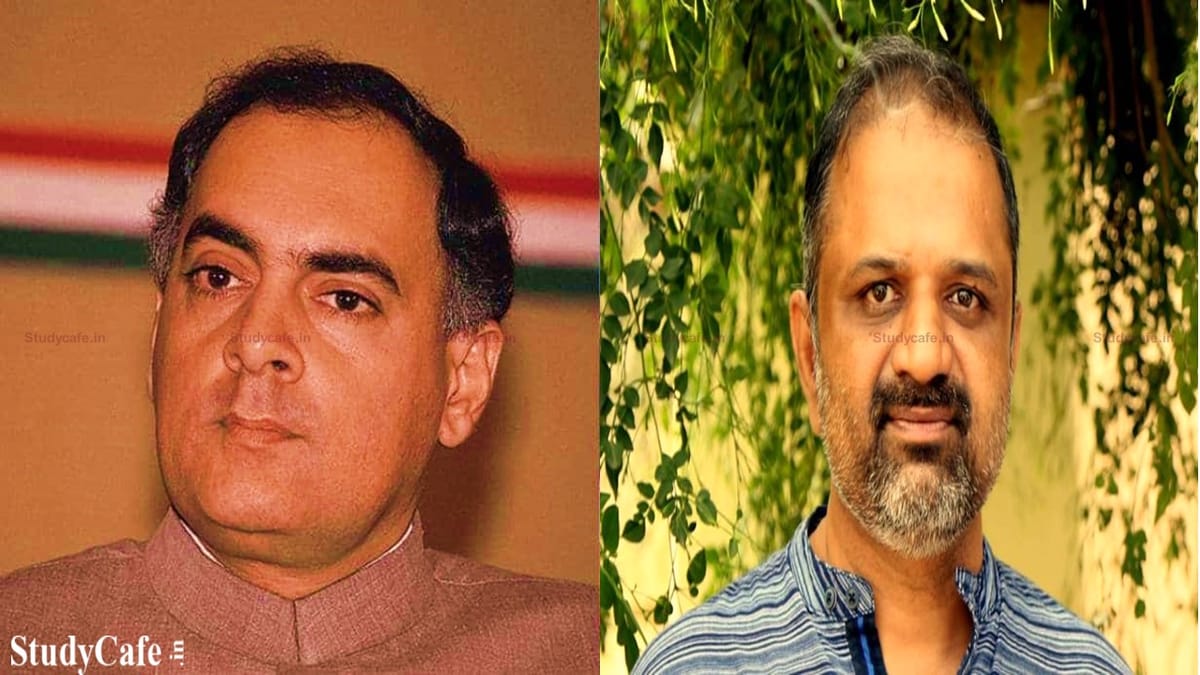Supreme Court Grants Bail To Rajiv Gandhi Assassination Convict AG Perarivalan after 30 years in Jail
Reetu | Mar 9, 2022 |

Supreme Court Grants Bail To Rajiv Gandhi Assassination Convict AG Perarivalan after 30 years in Jail
The Supreme Court ruled on Wednesday that A.G. Perarivalan, one of the seven convict in the former Prime Minister Rajiv Gandhi assassination case, is entitled to be released on bail based on his behaviour during his long incarceration, including the acquisition of educational qualifications and ill-health, after his lawyer complained that, despite being on parole, his client is not allowed to leave the house or meet anyone.
Taking into account Perarivalan’s nearly 32-year incarceration, a bench comprised of Justices L Nageswara Rao and BR Gavai granted him bail.
The Bench ordered that Perarivalan be freed on bail, subject to the compliance of the trial court’s terms. He is required to report to the local police station.
Meanwhile, the court continued the hearing on the Governor’s authority to determine the question of his early release agreed by the Tamil Nadu Cabinet, as well as the Governor’s referral of the matter to the President.
Earlier in the day, noting the absence of lawyers from the Centre’s side, the Bench stated that the case concerned the “important issue” of the Tamil Nadu Governor’s power or discretion to fence-sit and not decide on a plea to release Perarivalan, which had already won the approval of the State Cabinet, and then claim immunity of office.
Instead of making an independent decision, the Governor of Tamil Nadu directed the petition for early release to the President. This was despite the fact that the Tamil Nadu government’s Council of Ministers had recommended Perarivalan’s release on September 9, 2018.
“After sleeping over the Article 161 [pardon] petition for five years and sitting over the State Cabinet’s recommendation to release the petitioner for more than two and a half years, the Union of India, on February 4, filed an affidavit [in the Supreme Court] stating that Governor has sent the petition to the President, whereas the law is clear that Governor does not have independent discretion,” Perarivalan, represented by senior advocate Gopal Sankarana, said.
Perarivalan claimed that the “stalemate” over his release was “totally political”.
“He’s been imprisoned for 32 years,” Mr. Sankaranarayanan stated.
“This is a critical issue. We’d like to discuss the Governor’s authority to sit on a matter approved by the Cabinet… It can’t be this way. Some sort of order must be issued… He cannot claim immunity,” the Bench pointed out.
For the Tamil Nadu government, senior attorney Rakesh Dwivedi and advocate Joseph S. Aristotle claimed there were precedents to prove that a decision was not only based on the “personal discretion of the Governor.”
Due to the long pendency of his sentence, the Supreme Court remitted the death punishment for Perarivalan and two others to life imprisonment in 2014.
The Centre’s Additional Solicitor General, KM Nataraj, argued against Perarivalan’s bail. According to the ASG, he has already used the mercy petition benefit once, and his death sentence was commuted to life imprisonment by the Supreme Court in 2014 due to the delay in reviewing the mercy plea.
The ASG went on to argue that the next problem in the case was determining who was the proper authority to hear the request for remission. The application has been presented to the Governor, who has stated that the President has the authority to decide on it. He cited the Supreme Court’s 2015 Constitution Bench judgement in the Sriharan case to argue that the “proper authority” to decide the pardon is the Central Government under Section 432(7) CrPC. He contended that the offence in this case falls under a legislation dealing to an issue within the purview of the Central Government’s executive power.
Shankaranarayanan, Perarivalan’s counsel, stated that Perarivalan had been given parole three times and there has been no evidence of misbehaviour. In addition, his behaviour was good during the sentencing period, and he obtained educational qualifications and helped out in the jail library.
Perarivalan said that he had spent “16 years under the hangman’s noose, and 29 years in solitary confinement out of the total 30 years of incarceration.” He had experienced the agony and trauma of death row syndrome. “The agony was equally felt by the old and frail parents as a result of the ambiguity between life and death, hope and despair,” he had submitted.
In turn, the Centre had stated in an affidavit that the case against Perarivalan involved the assassination of none other than a former Prime Minister. In the 1991 bombing at Sriperumbudur in Tamil Nadu, 43 additional persons were killed or seriously injured.
Source: The Hindu & LiveLaw
In case of any Doubt regarding Membership you can mail us at contact@studycafe.in
Join Studycafe's WhatsApp Group or Telegram Channel for Latest Updates on Government Job, Sarkari Naukri, Private Jobs, Income Tax, GST, Companies Act, Judgements and CA, CS, ICWA, and MUCH MORE!"